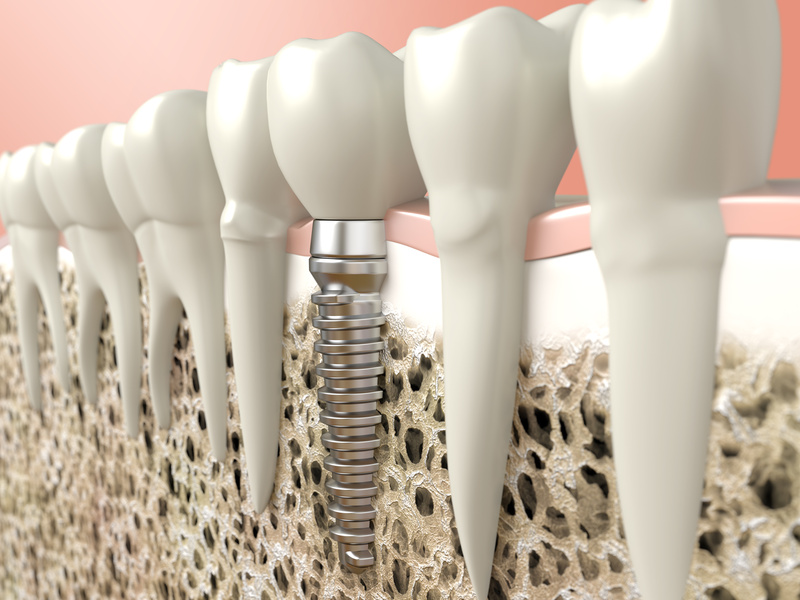The 2 Main Types of Dental Implant Surgery

Losing a permanent tooth can feel fairly bad due to the social stigma associated with imperfect teeth. In fact, according to recent American Academy of Cosmetic Dentistry survey data, 99.7% of adult respondents believe a healthy smile is socially important. This largely unspoken societal agreement that a good smile is important can certainly affect those with missing teeth in negative ways. Luckily, the humble dental implant is here to permanently solve this problem. But what types of dental implant surgery are available?
- Single-Stage Dental Implants
In this type of surgery, a long implant base is placed into the gum reaching all the way to the jaw bone, but not into it. The top of the implant is flush with the gum line. The gums are then stitched shut, leaving only the head of the implant exposed. This allows dentists to go back after the gums heal and attach the prosthetic tooth itself.
Subperiosteal implants are the most common single-stage implants. They are mostly used as the base for dentures, and they sit on the bone. This type of implant is typically more expensive because it needs to be custom fitted due to lack of viable jaw bone space. - Two-Stage Implants
These are largely the same as single stage implants, except they are drilled into the jaw bone. Also, the gums are stitched all the way shut, meaning there is a need for minor surgery to attach the abutment.
Endosteal implants are the main two-stage alternative to removable implants. They can be screwed in or inserted using a cone or blade that mimic the tooth’s natural root structure. They provide a more secure and permanent structure. They are also less expensive, but might not work for everyone’s mouth.
In general, dental implants open up many opportunities for continuing dental care in the area affected from tooth loss. From crowns and caps to completely prosthetic teeth, you will be able to maintain better oral hygiene and smile your brightest.
If you have lost a permanent tooth and you are feeling self-conscious about it, don’t worry. Talk to your dentist about dental implants and if they are a viable solution to your cosmetic dental problem.

